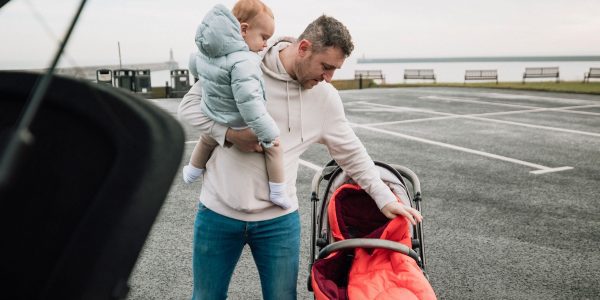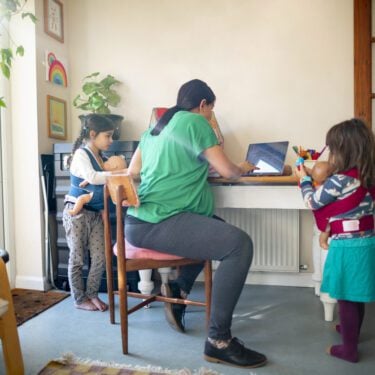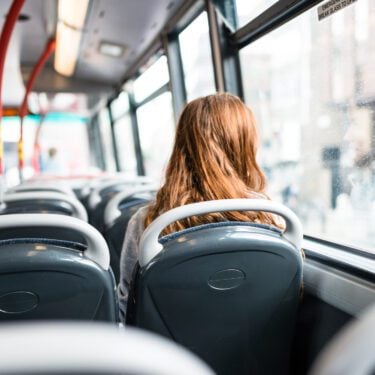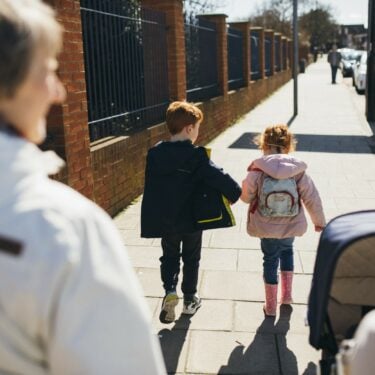Employment law for parents should be overhauled, starting with three months’ well-paid “daddy leave”, according to a new study from the Fatherhood Institute entitled Cash or carry.
Cash or carry is based on the most comprehensive review ever undertaken in Britain of decades of research into the roles of fathers in families, funded by the Nuffield Foundation.
Employment law for parents should be overhauled, starting with three months’ well-paid “daddy leave”, according to a new study from the Fatherhood Institute entitled ‘Cash or Carry?‘.
Cash or carry is based on the most comprehensive review ever undertaken in Britain of decades of research into the roles of fathers in families, funded by the Nuffield Foundation.
In it, The Fatherhood Institute recommends a radical shake-up of employment law to make it easier for fathers, as well as mothers, to care and earn for their families.
The report calls for employers to offer parity in leave and pay for parents and take action to encourage take-up by fathers. This reflects the finding that fathers are spending as much time engaging directly in the care of very young children as mothers were in the 1960’s.
Large employers – already required to publish information on gender “pay equity” – should likewise have to report on “care equity”, detailing who is taking family-based benefits.
The study found that employed fathers are almost twice as likely as mothers to have requests for flexible working turned down, and to fear that asking to work flexibly will damage their careers. Employers are also more likely to “top up” Maternity Pay levels than Paternity or Shared Parental Leave pay levels, supporting female employees, but not their male colleagues, to take leave.
The Institute is also calling for a change in the implementation of the Equalities Act to tackle inequalities at work experienced by fathers. The Government’s guidance on the Equalities Act should define negative representation of men’s/ fathers’ caretaking in the workplace as sex discrimination. Appropriate actions against discriminating employers should be introduced.
The report also backs actions to tackle the Gender Pay Gap, not only to benefit women: “The Gender Pay Gap makes it difficult for fathers to work shorter hours or take leave for parenting, as family income is more likely to be compromised when they do.”
Existing employment policy and practice is out of step with parents’ lives and aspirations. They cause mothers and fathers economic and personal hardship and damage children. This jobs plan gives both parents an equal platform to do their best for their children.”Adrienne Burgess, joint CEO of the Fatherhood Institute
Some key evidence from the report:
- Fathers’ caring has increased. Today’s fathers are spending as much time engaging directly in the care of very young children as mothers were in the 1960’s (Altintas, 2016). This is mainly by cutting back on personal time – and sleep (Fox et al., 2011). When time spent on earning and caring is combined, fathers work longer hours than mothers on weekdays (Hurrell & Davies, 2005.)
- Children do better with good care from dads. Children’s outcomes are better when their father has regularly looked after them ‘solo’ during their first year (Washbrook, 2007). Conversely, long hours working by fathers of infants is associated with behaviour problems in those children when aged 9-11 (Opondo et al., 2016).
- Employers discriminate against dads. Fathers are almost twice as likely as mothers to have requests for flexible working turned down (Olchawski, 2016). Employers are more likely to ‘top up’ Maternity Pay levels than Paternity or Shared Parental Leave pay levels, supporting female, but not male, parents to take leave (Sharp, 2017). When fathers ask to work part-time they are more likely than mothers to be judged by their managers as ‘not committed’ to their work, (Kelland, forthcoming, 2017).
- Dads are more fearful about taking leave. Fathers are more likely than mothers to fear that taking leave, or even asking to work flexibly, will damage their careers (Working Families, 2017).
- Equitable leave arrangements reduce the gender pay gap. Iceland, which already has a more equitable system of parental leave, now has the narrowest Gender Pay Gap in the world. In Sweden, it has been calculated that for every month of parenting leave taken by a father, his partner’s earnings increase by 7% (Johannson, 2010). In the UK, a father working flexibly and contributing to childcare almost doubles the chance of his partner progressing in her career (Frith, 2016).
- Fathers are misrepresented in the media. The Advertising Standards Authority points to widespread representation of men and fathers as bumbling and incompetent at home (ASA, 2017). Although David Beckham is praised for involved fatherhood, politicians embracing fatherhood tend to be ridiculed (Locke, 2014).
- Government policy discriminates against them. Government policy (Clapton, 2014), parenting guides (Gregory & Milner, 2008) and magazines (Sunderland, 2000, 2006) and children’s books (Adams et al., 2011) cast fathers in a secondary role to mothers, poke fun at them, emphasizing alleged lack of ‘natural’ parenting skills.
- High family conflict because of work. UK dads report Europe’ highest work/ family conflict: 35% ‘always’/ ‘often’ worry about work when at home; 38% say family responsibilities ‘often/ ‘always’ disrupt their concentration at work (Speight., 2014).











































